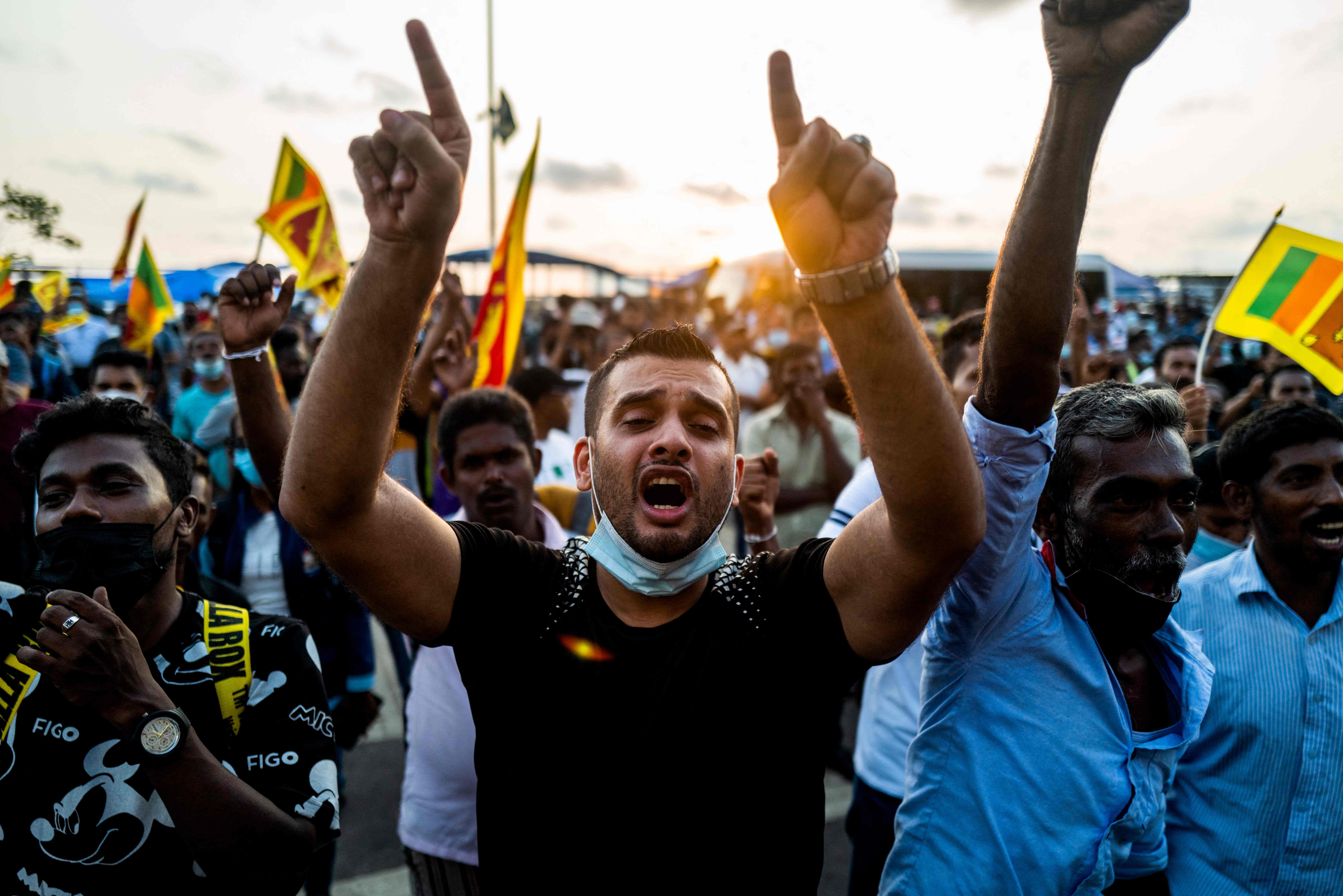‘We cannot carry on as usual’: Sri Lanka’s economic crisis forces artists to quit
Members of Sri Lanka’s creative community tell Peony Hirwani that their priorities have shifted from making art to making sure they can buy basics


Sri Lankan rapper Sahan Isuranga, widely known as DrBSKing, has not been able to run his studio in the past two months and his earnings have taken a hit.
The rapper is among hundreds from Sri Lanka’s vibrant community of creative artsists driven to despair as the country remains mired in deep economic and political crisis.
Protests have rocked Colombo and other parts of the island nation of 21 and a half million people following prolonged power cuts and fuel and medicines shortages triggered by a foreign exchange reserve crisis that has halted imports of essential items.
It has also forced members of Sri Lanka’s local entertainment and creative industry – painters, dancers, musicians, calligraphers, producers, and screenwriters – to take on small jobs to be able to sustain themselves during this crisis.
“The price of all the basic things that we need has increased,” DrBSKing told The Independent.
“Price of transport, fuel and everything else is high. The monthly income is not enough to pay the bills. We can only afford food with the money that we earn, but we don’t have gas to cook that food. We don’t have medicines and we don’t have electricity on many days. We cannot carry on life as usual,” he says.
Many people, including artists, have taken to the streets to demand the resignation of Sri Lanka’s president, Gotabaya Rajapaksa, holding him responsible for the national crisis.
Leah Marikkar, co-founder and director of artist management and talent agency Boom Ltd, says “when it comes to the music industry, a power cut means that you can’t run an event space”.
There have been power cuts that have gone on for more than 13 consecutive hours.
Even if an event happens, coordinators never know when a power cut might interrupt it.
“They’re not equipped to handle it as you need a generator, and for a generator, you need diesel” – which is not available.
Recently, Marikkar had an artist on her roster who moved to Sri Lanka from the UK. On the day he was to perform, an island-wide curfew was announced at a two-hour notice. Marikkar says she has had to re-work the arrangement with the artist.
“Everyone’s taken a massive hit in terms of income,” she says. “So it definitely affects the growth of this industry, and it affects the fact that people are not looking at music as a form of career because they are not going to make any money right now.”
DrBSKing has been struggling with the incessant power cuts.
“I’m a producer and I’m running a studio”, he says, which needs uninterrupted electric supply. The rapper, who is also the director of Wave Park Music Group, oversees almost 25 tracks in a month. Right now, he’s able to deliver only 10.
Another local rapper, who goes by the name Big Doggy, says no one’s listening to music at the moment. “People don’t have the mindset to enjoy any art form right now,” the Negombo-based rapper, whose real name is Prageeth Madushanka, says.

The rapper says the priorities of those in the artistic community has shifted. Everyone’s had to queue up since morning at gas stations or grocery stores.
“Even though people do have money, the country does not have medicines and can’t buy many essentials such as milk powder and dairy products,” he says. “Artists are also human beings and going through the same issues, so honestly, they don’t have a relaxed mind to make new content.”
DrBSKing says if this crisis lasts for over two to three months, “I don’t know where artists are going to end up”. The rapper believes that everybody in the business may be forced to take on small jobs.
“We won’t be able to afford things like studios and videographers.”
Marikkar says there’s a silver lining, however.
“Artists have been campaigning, protesting, writing songs and singing to the protesters. It has been a very uplifting time because everyone’s come together.” She also took to the streets to protest the current regime, she says.
“The music industry, as small as it is, is very united. So if anything, I have to say that one part of the future looks fantastic, because this country has become very united.”






Join our commenting forum
Join thought-provoking conversations, follow other Independent readers and see their replies
Comments